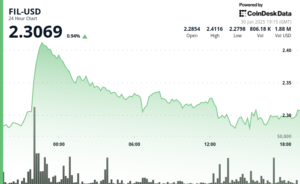The Future of Mortgages: Exploring Cryptocurrency in Home Loan Applications
The evolving landscape of finance has reached a pivotal moment with the U.S. Federal Housing Finance Agency (FHFA) exploring the inclusion of digital asset holdings, such as Bitcoin, in the mortgage application process. On July 24, FHFA Director Bill Pulte announced this initiative on X (formerly known as Twitter), signaling the onset of a review aimed at understanding how cryptocurrency could potentially influence home loans. This exploration signifies an important shift in perspective, as the FHFA oversees major institutions that govern America’s housing finance system, including Fannie Mae, Freddie Mac, and the Federal Home Loan Banks. With these considerations, the mortgage application process may soon embrace a new era.
Traditionally, mortgage underwriters have been conservative, accepting collateral from established avenues like savings accounts, retirement funds, and publicly traded securities. This cautious approach is primarily due to the inherent volatility of cryptocurrencies and ongoing uncertainties regarding their regulation. However, the FHFA’s recent initiative reflects an emerging trend toward recognizing cryptocurrencies as legitimate financial instruments in housing finance. The review could lead to a significant evolution in how underwriters assess borrower eligibility, opening doors for a demographic of digital asset holders long considered excluded from the mortgage market.
The implications of this initiative could be transformative, particularly for holders of cryptocurrencies who have faced barriers in securing mortgages. Under current practices, many individuals have been required to liquidate their digital assets into fiat currency, often allowing these funds to rest in traditional banking accounts for extended periods—sometimes several months—before lenders are willing to acknowledge them. This not only delays the financing process but also compels many long-term cryptocurrency investors to divest unexpectedly, potentially losing value as market trends shift. The FHFA’s review is timely and could alleviate many of these challenges, providing a pathway for crypto enthusiasts to leverage their digital assets in a more efficient manner.
Potential models for integrating cryptocurrencies into mortgage evaluations are already emerging. For instance, Michael Saylor’s firm, Strategy, has developed a Bitcoin credit framework designed to assess risk based on factors such as Bitcoin’s price volatility, loan terms, and projected financial returns. This innovative model could serve as a roadmap for the FHFA as it navigates the complexities of incorporating digital currencies into mortgage assessments. While concrete plans are yet to be disclosed, these steps reflect an optimistic trajectory toward modernizing the evaluation process for digital assets.
Industry responses have been overwhelmingly positive, as many recognize the potential for enhanced financial inclusivity in the mortgage sector. Notably, figures like Tristan Yver, co-founder of BackPack crypto exchange, have voiced support for the initiative, highlighting the frustrations faced by digital asset holders. The proposed changes would eliminate the cumbersome requirement of liquidating cryptocurrency holdings, which often penalizes savvy investors. The potential easing of these restrictions could empower a new wave of applicants who can utilize their diverse financial portfolios, thereby creating broader access to homeownership.
As discussions around cryptocurrency acceptance evolve, it is essential to remain aware of the potential pushback from traditional financial institutions. Players like JPMorgan have historically mandated that digital assets be converted into fiat and aged in a conventional bank account before being considered in mortgage qualifications. Such stringent requirements illustrate a reluctance to fully embrace the changing financial landscape that cryptocurrencies represent. Nonetheless, the FHFA’s willingness to consider these assets marks a significant shift in regulatory openness, paving the way for more comprehensive integration of digital assets into mortgage evaluations.
In conclusion, the FHFA’s initiative to explore the incorporation of cryptocurrency into the mortgage application process is a groundbreaking move that suggests a shift toward more inclusive financial practices. As the review progresses, potential frameworks like those developed by Strategy could serve as guiding methodologies for assessing risk and integrating new financial technologies. This evolution not only stands to benefit cryptocurrency holders but could also stimulate broader adoption of innovative financial products within the housing market, making homeownership more attainable for many, ultimately reshaping the future of mortgages in the United States.

















